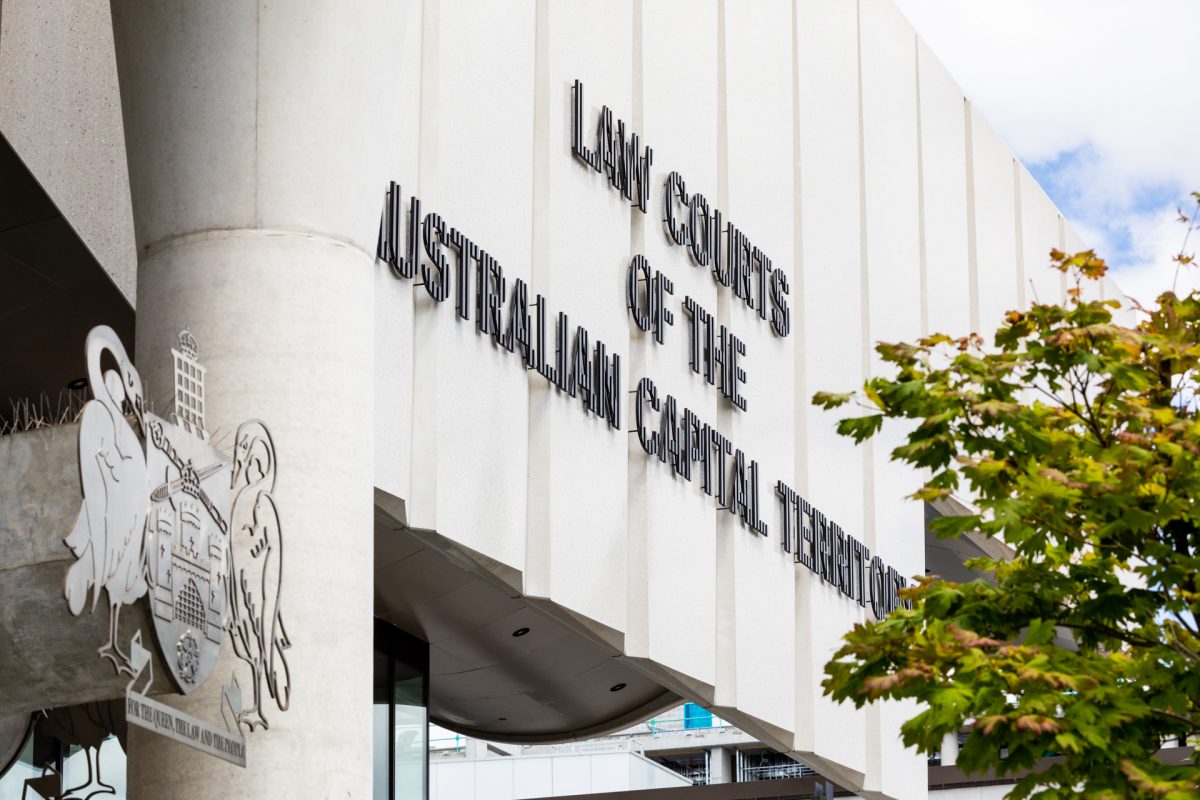
Could a sexual assault court fix the problems victims experience in the ACT’s court system? Photo: Michelle Kroll.
If the past year of allegations, counter allegations, smears and conflict in the Lehrmann matter has taught us anything, it’s that there are no easy legal solutions in many cases of sexual assault.
This is not news: sexual assault by a perpetrator known to the victim is both more common and harder to prove than violent assault by a stranger, which remains rare.
That’s not to dispute the reality of assault allegations: distressingly large numbers of women (81 per cent according to some studies) and many men report they have experienced some form of sexual harassment, assault or coercion during their lives.
These crimes can have devastating consequences for mental and physical health, emotional wellbeing and future relationships. Only about 13 per cent are ever reported to police, and it’s surmised this is often due to anxiety about re-living the trauma in court, without any guarantee of justice.
Those are well grounded fears: in the ACT there were more than 500 reports of sexual offences to police in the 2021-22 reporting period, with very few getting to court. Those that do have a seven per cent conviction rate.
Our courts must hold two things in tension: allegations of serious crime should be taken seriously and dealt with effectively, but the presumption of innocence is the bedrock of our legal system.
So how do we ever satisfactorily resolve cases (like the Lehrmann matter) where there is no contemporaneous reporting, no corroborating evidence and no witnesses?
Brittany Higgins’ experience over the past year will do absolutely nothing to reassure victims that it is safe to come forward and report their allegations. She appears to have been destroyed by her experience.
Bruce Lehrmann, like everyone else, was entitled to the presumption of innocence but the case’s fatal flaw was always the rush on all sides to publicise and politicise the allegations ahead of due process.
Our legal system requires guilty findings in criminal matters to be beyond reasonable doubt. It’s unsafe to convict people – or acquit them – on instinct or emotion.
But that same system is also predicated on laws made when there was little recognition of assault within relationships and rape was mostly categorised as a violent attack by a stranger. We now (mostly) understand that sexual assault can happen anywhere and victims don’t conform to a pre-determined set of behaviours after the fact.
It begs the question of whether our courts are the right places to try these crimes, in an adversarial system where both accused and victim are picked to pieces and the consequences are epic.
MLA Dr Marisa Paterson has suggested a sexual assault court, similar to the specialised drug and alcohol court and the family court. Matters would be heard by judges and legal practitioners specially trained in the dynamics of sexual violence, coupled with an understanding of appropriately questioning ‘vulnerable witnesses’, and an expedited court hearings list to ensure cases don’t drag on for years.
It’s a recommendation that dates from the Listen. Take Action to Prevent, Believe and Heal report from 2021 and more recently in the Sofronoff Report from the Board of Inquiry into the ACT’s criminal justice agencies (with its own flaws and dramas).
There is merit in changing our approach. Fairer, faster justice in matters of deep personal consequence is a good aim, as is less trauma and more care for everyone concerned.
Police and lawyers must act with impartiality and concern for personal dignity. They must make it safe to report crimes and safe to pursue matters through the courts.
But above all, beyond anything, let’s respect due process, fair trials and the presumption of innocence. And if a crime is alleged, go to the police first, not the media.





















